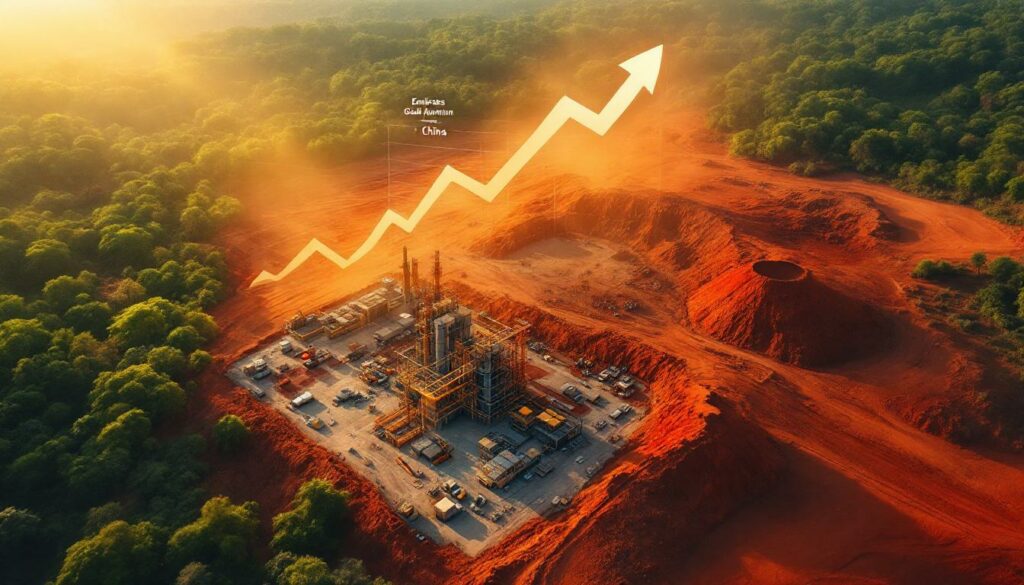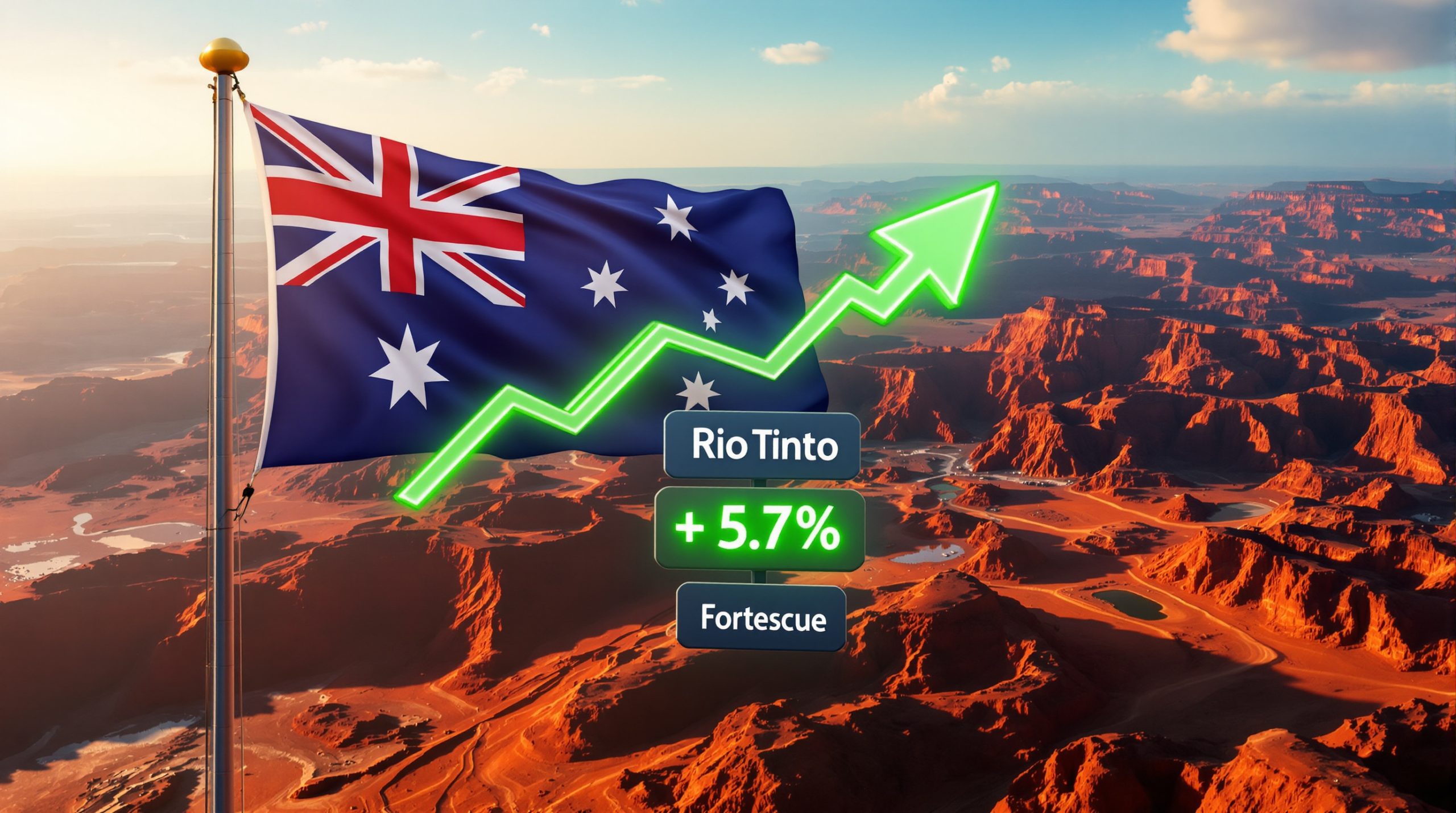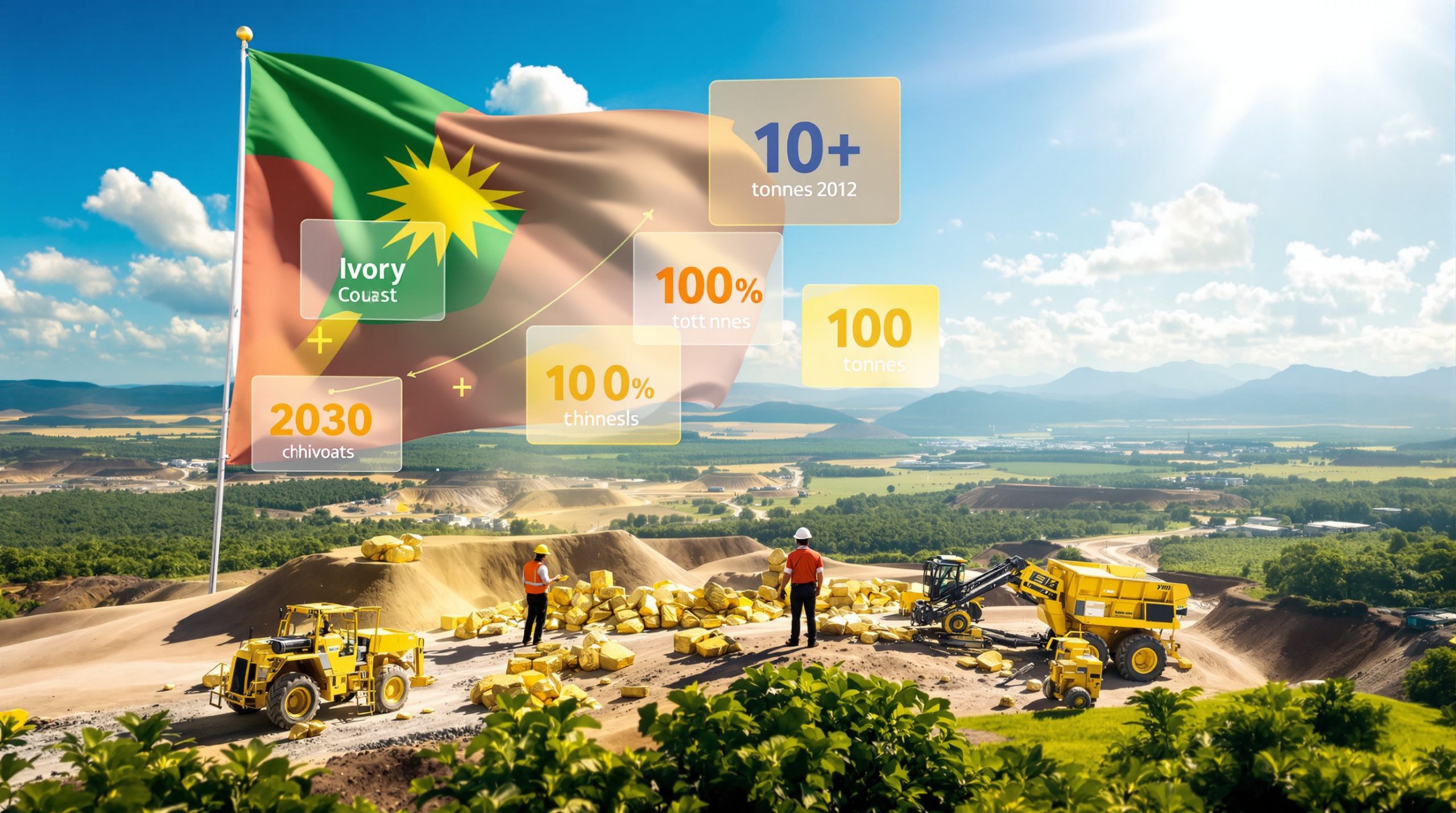Understanding the Guinea-EGA Dispute: Implications for Aluminum Industry
The termination of Emirates Global Aluminium's (EGA) contract with Guinea marks a significant turning point in the global aluminum industry, with far-reaching implications for bauxite supply chains, commodity prices, and international mining investments. This high-stakes dispute highlights the growing trend of resource nationalism across West Africa and poses important questions about the future relationship between resource-rich nations and multinational mining companies.
What Happened Between Emirates Global Aluminium and Guinea?
On July 9, 2025, Emirates Global Aluminium announced that Guinea's government had "wrongfully terminated" its agreement with Guinea Alumina Corporation (GAC), EGA's subsidiary operating in the West African nation. This dramatic development followed approximately 12 months of escalating tensions centered on Guinea's demand for the construction of an alumina refinery within the country.
"These actions have made the continuation of GAC's operations and the development of an alumina refinery impossible," stated Abdulnasser Bin Kalban, CEO of Emirates Global Aluminium, in the company's official announcement.
The dispute intensified after Guinea's military government suspended GAC's bauxite exports and mining operations as part of a broader strategy by military-led West African states to extract greater benefits from their natural resources. Despite attempts at negotiation, the relationship deteriorated to the point where Guinea formally terminated the agreement.
EGA, jointly owned by Abu Dhabi sovereign wealth fund Mubadala and Dubai sovereign wealth fund Investment Corporation of Dubai, has announced plans to pursue remedies through international tribunals, setting the stage for a protracted legal battle with significant stakes for both parties.
Why is Guinea Pushing for Local Refineries?
Guinea's drive for local refining capacity stems from its position as the world's second-largest producer of bauxite, controlling approximately one-third of global reserves. The military junta, which seized power in 2021, has implemented a strategic shift in resource management, demanding that miners present concrete plans to build refineries within the country.
This policy represents a fundamental change in Guinea's approach to its mineral wealth. Rather than continuing as merely an exporter of raw materials, the government aims to capture greater value from its natural resources by moving up the processing chain. By requiring in-country refining of bauxite into alumina, Guinea hopes to create more jobs, develop technical expertise, and significantly increase its revenue from the aluminum value chain.
The economic rationale is compelling: refined alumina commands substantially higher prices than raw bauxite. By processing the ore domestically, Guinea could potentially multiply the mineral beneficiation benefits derived from its bauxite reserves. This approach aligns with broader resource nationalism trends emerging across several resource-rich African nations.
What Are the Economic Impacts of the Termination?
The immediate consequence of the contract termination is the announcement of "significant redundancies" affecting more than 2,000 employees and contractors at GAC's operations. This represents a substantial economic blow to local communities that have become dependent on mining-related employment and business opportunities.
"We have maintained GAC's employee workforce in difficult circumstances for as long as possible," explained Bin Kalban, highlighting the company's reluctance to reduce its workforce despite the operational challenges posed by Guinea's export restrictions.
Beyond the direct employment impacts, the termination raises concerns about Guinea's investment climate and could potentially affect future foreign direct investment in the country's mining sector. International investors may reassess risk premiums for operations in Guinea and similar jurisdictions where resource nationalism policies are gaining momentum.
For EGA, the termination represents a significant setback to its vertical integration strategy and global supply chain. The company had invested substantially in developing its Guinea operations as a key source of bauxite for its aluminum production facilities in the United Arab Emirates.
How is Guinea's Bauxite Industry Performing Despite Stricter Regulations?
Interestingly, despite implementing stricter regulations on mining companies, Guinea's overall bauxite industry has demonstrated remarkable resilience. According to recent data, the country's bauxite exports jumped an impressive 36% in the first half of 2025, reaching a record 99.8 million metric tons.
This seemingly contradictory growth amid regulatory tightening can be attributed to several factors. Primary among them is robust Chinese demand for bauxite, which has incentivized other mining companies to adapt to Guinea's new requirements. Chinese aluminum producers, facing domestic supply constraints, have shown greater willingness to invest in processing facilities to secure access to Guinea's rich bauxite reserves.
Several major mining companies operating in Guinea have accelerated plans to develop alumina refining capacity within the country, demonstrating that while EGA found Guinea's requirements untenable, others have managed to adapt their business models to the new regulatory environment.
This export growth suggests that Guinea's resource nationalism approach may be achieving its dual objectives of maintaining export volumes while gradually building domestic processing capacity. However, the Emirates Global Aluminium and Guinea deal termination demonstrates the delicate balance required to implement such policies without alienating key investors.
What Does This Dispute Reveal About Resource Nationalism Trends?
The Guinea-EGA dispute exemplifies a broader trend of resource nationalism sweeping across West Africa, particularly in countries governed by military juntas. These governments are increasingly assertive about capturing greater economic value from their natural resources, challenging traditional extraction-focused mining models.
This shift represents a fundamental realignment of the relationship between resource-rich nations and multinational mining companies. Historically, many African countries offered generous terms to attract foreign investment in their mining sectors, often resulting in arrangements where the bulk of value addition occurred outside their borders.
The current wave of resource nationalism seeks to address this perceived imbalance by mandating local processing, increasing royalty rates, and demanding greater ownership stakes in mining projects. Guinea's approach of requiring bauxite miners to build alumina refineries follows similar patterns seen in countries like Indonesia, which banned raw nickel exports to force development of domestic processing facilities.
For mining companies, this trend necessitates a strategic recalibration. The traditional model of securing mining rights primarily for raw material extraction is increasingly giving way to more complex arrangements involving commitments to local industrial development. Companies that can adapt to these new expectations may gain competitive advantages, while those unwilling or unable to make such adjustments may face challenges similar to EGA's experience in Guinea.
What Are the Global Implications for Aluminum Markets?
The termination of EGA's agreement with Guinea introduces potential disruptions to global bauxite and aluminum supply chains. While GAC's operations had already been suspended prior to the formal termination, the finality of this decision removes any near-term prospects of resumed exports from these operations.
This development highlights the vulnerability of aluminum supply chains that depend heavily on politically volatile regions. Guinea's position as the holder of approximately one-third of the world's known bauxite reserves makes it a crucial link in global aluminum production.
Market participants will need to monitor how quickly any production gaps can be filled by other suppliers. The strong export performance of Guinea's bauxite sector despite GAC's suspension suggests other producers may have the capacity to increase output to capitalize on market gaps.
Long-term price impacts will depend on how Guinea manages its relationships with other bauxite producers and whether the country can successfully implement its refinery development goals without further disrupting exports. The aluminum market has experienced similar supply disruptions in the past and typically adjusts over time, but short-term price volatility remains a possibility.
For aluminum consumers, this situation underscores the importance of supply chain diversification. Companies heavily dependent on Guinean bauxite may accelerate efforts to develop alternative sources or increase inventory buffers against potential future disruptions.
What Legal Options Does EGA Have?
Emirates Global Aluminium has announced its intention to pursue remedies through international tribunals, setting the stage for what could be a lengthy and complex legal battle. The company likely has contractual protections under investment agreements that provide recourse in the event of actions it considers to be "wrongful termination."
International arbitration typically offers a neutral forum for resolving disputes between companies and sovereign states. Depending on the specific agreements in place, EGA may pursue arbitration through forums such as the International Centre for Settlement of Investment Disputes (ICSID) or under the terms of bilateral investment treaties between the UAE and Guinea.
The company will likely seek substantial compensation for lost investments, future profits, and damages related to the termination. EGA has invested significantly in infrastructure and operations in Guinea, and compensation claims could include costs associated with workforce redundancies and unrealized returns on these investments.
The arbitration process could take years to reach resolution and involve significant legal costs for both parties. The outcome will depend on specific contract terms, applicable international law, and the arbitrators' assessment of whether Guinea's actions constituted a legitimate exercise of sovereignty or an improper expropriation of EGA's investments.
Previous mining contract disputes suggest that companies can sometimes secure substantial compensation, even when they do not regain operating rights. However, enforcement of arbitration awards against sovereign states can present additional challenges.
FAQ: Guinea-EGA Bauxite Dispute
Why is bauxite important to the aluminum industry?
Bauxite is the primary ore used in aluminum production, containing aluminum oxide compounds that must be refined into alumina (aluminum oxide) before being smelted into aluminum metal. Guinea possesses approximately one-third of the world's known bauxite reserves, making it a crucial source for the global aluminum industry. The country's bauxite is particularly valuable due to its high quality and relatively accessible deposits, which make it economically attractive for extraction and processing.
How might this dispute affect global aluminum prices?
The termination could potentially create short-term price volatility in aluminum markets if it leads to significant supply disruptions. However, the impact depends on how quickly other suppliers can fill any production gap left by GAC's operations. Given that Guinea's overall bauxite exports have continued to grow despite GAC's suspension, the market may have already partially adjusted to this situation.
Long-term effects will be determined by Guinea's policies toward other producers and whether the country can successfully implement its refinery development plans without disrupting overall export volumes. The aluminum market has demonstrated resilience to similar disruptions in the past, suggesting that prices typically stabilize as supply chains adjust.
What precedent does this set for other mining operations in Guinea?
The termination signals Guinea's seriousness about enforcing its refinery construction requirements. Other mining companies operating in the country are likely to accelerate their plans for local processing facilities or risk similar consequences. The situation demonstrates that Guinea's government is willing to take strong measures, including terminating agreements with major international companies, to advance its resource nationalism agenda.
International investors may require stronger contractual protections for future projects in Guinea and potentially across West Africa. The dispute could influence how mining agreements are structured throughout the region, with more explicit provisions regarding local processing requirements and clearer mechanisms for resolving disagreements about implementation timelines.
How does this dispute compare to similar resource nationalism cases?
The Guinea-EGA dispute follows patterns seen in other resource-rich nations that have implemented policies to capture greater value from their natural resources. Indonesia's ban on raw nickel exports provides a notable parallel, as it similarly forced mining companies to invest in domestic processing facilities.
However, each country's approach reflects its specific economic and political circumstances. Guinea's focus on bauxite-to-alumina processing represents a strategic decision based on its dominant position in global bauxite reserves. The success of such policies depends on balancing the legitimate desire for domestic economic development with the need to maintain an attractive environment for the international investment required to develop processing facilities.
Disclaimer: This analysis contains market projections and interpretations of government policies that are subject to change. Readers should consult multiple sources and professional advisors before making investment decisions based on developments in Guinea's bauxite sector.
Further Exploration
Readers interested in learning more about resource nationalism in African mining can explore related educational content from industry publications that offer perspectives on evolving relationships between governments and mining companies in resource-rich nations. Understanding these dynamics will be crucial for investors, policy makers, and industry participants navigating the mining industry evolution and implementing effective critical minerals strategy for the future. Furthermore, analyzing cases where mining companies have successfully managed to align their operations with national development goals, such as with certain bauxite project benefits, can provide valuable insights for navigating the changing landscape of global resource development.
Want to Stay Ahead of Major Mineral Discoveries?
Discover why significant mineral finds can lead to extraordinary market returns by exploring Discovery Alert's dedicated discoveries page, where their proprietary Discovery IQ model delivers real-time alerts on promising ASX mineral announcements, giving you the advantage before market movements occur.




